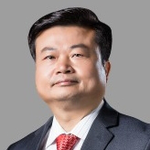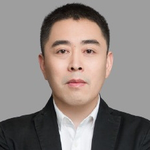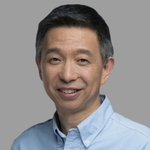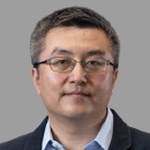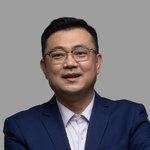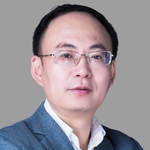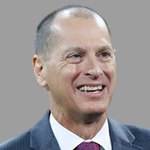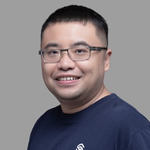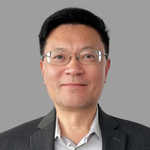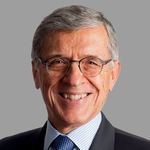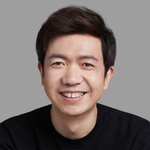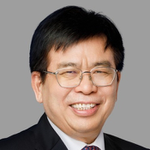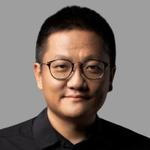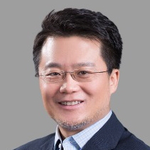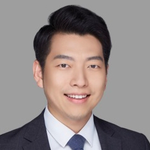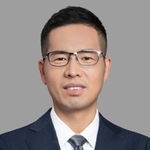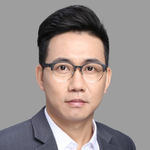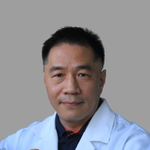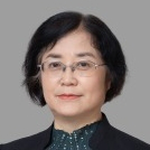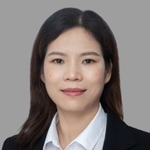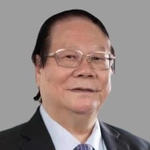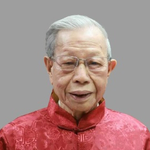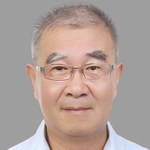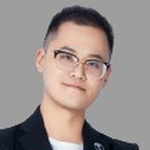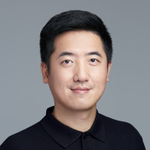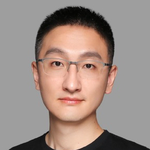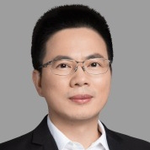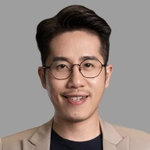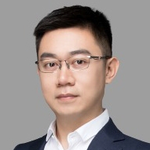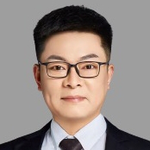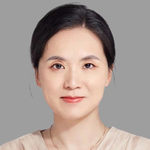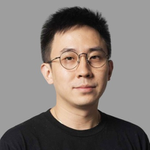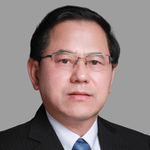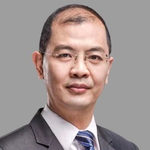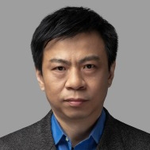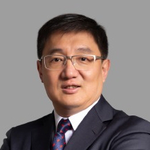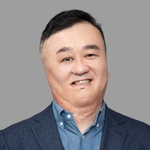- WELCOME REMARKS
CLAY CHANDLER - 欢迎致辞
马曙- 马曙
马曙
广州市人民政府副秘书长
- 马曙
- REMARKS BY THE HOST CITY
Chuyuan Li - SETTING THE AGENDA
DEREK ZHANG - Training China's computing muscle
CLAY CHANDLER•Dr. Jian WangChina has the world's second largest amount of computing power, and that number is likely to grow as tech giants like Alibaba, Tencent, Baidu and Huawei invest in building up China's computing muscle. But what will businesses do with all this power? Future technologies, like artificial intelligence, need a lot of computing power--much more than what's required by current digital business models. Enterprises will have to identify the critical problems that computing power can help them tackle and solve. FORTUNE talks with the founder of Alibaba Cloud to learn more about how China's computing power can do for industry.
- Charging ahead: The electric vehicle race goes global
Dr. Brian Gu•Zhongmin Xi•DEREK ZHANGIn the global race top build electric vehicles, many of the early front-runners hail from China. In their home market, Chinese players including BYD, NIO, XPENG, and LI Auto, are outperforming Tesla and other foreign carmakers. Will China’s EV manufacturers prove equally competitive as they expand into markets overseas?
- What does ChatGPT mean for your businesses? (Virtual)
Alan Murray•Thomas M. SiebelChatGPT, a new artificial intelligence chatbot, has taken the internet by storm. Both the U.S. and China have touted A.I. breakthroughs in recent months. How can businesses use the same technology that powers ChatGPT to improve their business operations? We talk to one of the leading founders of enterprise software and A.I. to find out.
- NETWORKING BREAK
- Investing for the long-term
Ben Harburg•He Huang•Hao Li•Claire Zillman•Joyce WangChina has identified a host of complex, research-intensive sectors including semiconductors, quantum computing, nuclear fusion, electric vehicles, and solar power as critical priorities for the nation’s economic development. But unlike investments in consumer-facing internet companies, investments in these “hard” sectors may take a long time to mature. Great scientific discoveries can take decades to move from the lab to the marketplace. Do investors have the patience to deploy capital over extended periods?
- The Internet Comes of Age: Computing Power in Everything Everywhere All at Once
Xianmin Jin•Dr. Huaiyu Meng•FANG Wang•Hui ZhangQuantum computing could be the next big step in processing power, unlocking new advances in modeling, optimization, and A.I.-driven development—if the technology can ever be developed commercially. How far away is quantum computing from commercial viability? What are the opportunities for industrial innovation and growth? And, with reports that a Chinese company has developed a so-called practical quantum computer, how far along are China's efforts?
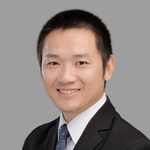
Xianmin Jin
Director of Wuxi Photonic Chip Research Institute, Shanghai Jiao Tong University, Founder and CEO of Turing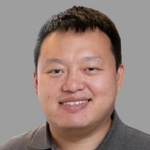
Dr. Huaiyu Meng
Co-Founder & CTO at Lightelligence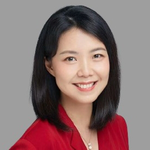
FANG Wang
Shanghai Executive Editor, FORTUNE China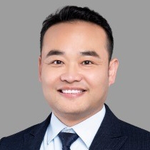
Hui Zhang
PhD of physics from University of Science and Technology of China, Deputy Director of the Quantum Computing Group of the Chinese Computer Society, Director of Anhui Quantum Computing Engineering Research Center, Legal person and General Manager of Hefei Origin Quantum Computing Technology Co., Ltd
- Navigating Innovation and Tensions, a View From CES (Virtual)
Gary Shapiro•Michal LEV-RAMEmerging technologies, such as generative AI, are going to be the biggest changes for business in the coming year. Yet tech competition and political tensions between the U.S. and China could constrain global cooperation on new technologies. We sat down with the leaders of CES, one of the world's largest technology events, to discuss how these changes and tensions will affect the technology industry and how companies should adapt to the changing landscape.
- Nuclear fusion’s time to shine
Rui Chen•Houyang Guo•Sam YANGMankind's constant search for new sources of energy has led to competition between the United States and China in an unexpected field: commercially viable nuclear fusion. China has created a record-setting “artificial sun,” while the U.S. recently announced a breakthrough in fusion ignition. What is the future of commercially viable fusion energy?
- Digital Revolution: How History Shapes Our Future(Virtual)
FANG Wang•Tom Wheeler“History doesn't repeat itself, but it often rhymes.” The digital age has been the source of tremendous progress throughout human society, but it has helped spark immense instability and inequality. What can we learn from the technology-driven upheavals of the late 19th and early 20th centuries, which shaped the world that incubated today’s technology? We'll talk with the former chairman of the Federal Communications Commission (FCC) about the lessons of history and how they can help us tackle the challenges we face today.
- SWITCH BREAK
- LUNCH
- Buffet Lunch
- FORTUNE China Most Innovative IoT Companies Awards Luncheon by Invite Only - 转场
- Driving Digital Success
Nicholas GORDON•Chuyuan Li•Angela Liu•David XieTo remain competitive in today's ever-changing business world, companies must modernize their operations and increase their efficiency to stay ahead. Yet despite the availability of new technologies and tools, the path forward for business is not always clear. The companies that stay ahead of the curve have found ways to use the right technologies and tools to develop new products that meet changing market needs and address challenging situations. What can we learn from their experiences?
- Carbon neutrality: the path to zero
Xudong Chen•Junfeng LI•Huqing Liang•Henry Liu•Yvonne XieOrganizations around the world are confronted by the challenge of developing and deploying climate technologies in order to reach the global net-zero agenda. Scaling these technologies requires leaders to build new value chains and industrial ecosystems, and to decide whether to prioritize near-term earnings or to focus on potential future exponential growth. Leaders must develop a winning strategy to successfully navigate this complex landscape, l. We talk with experts in this field on how to choose the best strategy as the world moves to a carbon-neutral future.
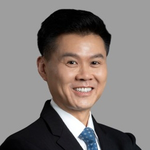
Xudong Chen
Chairman and General Manager, IBM Greater China Group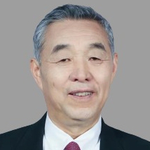
Junfeng LI
First Director General of National Center for Climate Change Strategy and International Cooperation (NCSC)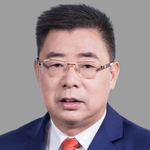
Huqing Liang
President, Guangzhou Municipal Construction Group Co.,Ltd.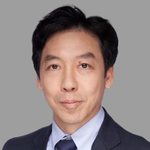
Henry Liu
Vice President and General Manager, Honeywell Performance Materials and Technologies Asia Pacific
Yvonne Xie
New Media Executive Editor, FORTUNE China
- Innovative Technology Meets Traditional Chinese Medicine
Liang Liu•Wei YueSeveral policies have been released in recent years to support the development of traditional Chinese medicine (TCM) and further promote the revitalization of the industry. Beyond this policy support, how can the industry address the challenges and opportunities it’s currently facing? How can innovative technologies such as cutting-edge biotechnology and artificial intelligence help Chinese medicine contribute more discoveries like “artemisinin,” which led to a Nobel Prize, to the world?
- SWITCH BREAK AND NETWORKING
- SUB-FORUM
SUB-FORUM I. THE FUTURE OF HEALTHCARE
(Hosted by GPHL)
15:30-15:35 SETTING THE AGENDA
15:35-16:05 Reimagining Healthcare: The Age of AI and Biotech
The rise of health care costs and the inequitable distribution of health care resources are global challenges. Meanwhile, advances in synthetic biology, AI, and other technologies have opened up new possibilities for the healthcare industry. How will the future of the healthcare industry and our efforts to solve pressing healthcare problems be affected by the synergy between advances in AI, synthetic biology, computational biology, and drug development or even robotic surgery?
16:05-16:20 Inclusion for the Elderly
Population aging and technological progress are happening in parallel. While older workers are looking at the prospect of delayed retirement, technologies such as artificial intelligence are reshaping the skill structure of the workforce, redefining what skills are in-demand. “Laid off at 35” and “Retired at 65” are emerging hand-in-hand. Will technology make our future old or productive? Business might help provide an answer: What change can we make to open more possibilities for the future of an aging society?
16:20-16:45 The Evolutionary Equation of Chinese Medicine
Thanks to technology, people have new expectations for their life and their health. Naturally, medicine carries many of these expectations. Chinese medicine, handed down over thousands of years, now faces the problem of balancing inheritance with innovation. How can Chinese medicine be better modernized and rejuvenated? How can TCM use new technology to develop new drugs—different from and also a complement to Western medicine—and realize its proper value in protecting human life and health?
16:45-16:55 Innovative Solutions to Control Invasive Species
More than 660 invasive alien species are present in China, posing a significant threat to the country's biodiversity. Invading plants, insects, fish and reptiles drive out native species and destory crops, damaging local industries and global food security. An export in plant ecology tells us how science and technology can help us control these species—and turn a harm into a benefit?
16:55-17:00 ADJOURN
SUB-FORUM II. THE FUTURE OF MOBILITY
(Hosted by GAC Group)
15:30-15:35 SETTING THE AGENDA
15:35-16:05 Reshaping the Auto Supply Chain
Cars are now getting smarter, in no small part due to the boom in electric cars. Yet these more complex cars mean more complex supply chains, leaving automakers under threat from disruptions like the semiconductor shortage. Will manufacturers need to build a new relationship with their suppliers? We speak with executives from these industries to learn more about how the auto supply chain is changing with the times.
16:05-16:30 Ditch the Driver: Opportunities and Roadblocks
Autonomous vehicle sales are predicted to hit $7 trillion annually by 2050, and self-driving technology is one of the many fronts in the tech battle between the U.S. and China. Companies will need to get an edge not just in the driverless cars themselves, but also in the artificial intelligence, sensor, and mapping technologies that make them possible. But a fragmented market creates hurdles that slow the growth of autonomous vehicles.
What needs to be done to ensure the global adoption of driverless cars? The leading players in autonomous driving tell us.
16:30-16:55 The future of mobility
Urban congestion is still a major issue in cities around the world. New technologies, like autonomous driving and industrial-grade unmanned vehicles help resolve traffic-related problems and offer hope for the future of travel. When might robotaxis and even flying cabs become how we travel around? Leading companies will share what innovation in transportation will look like.
16:55-17:00 ADJOURN
SUB-FORUM III. THE FUTURE OF CITIES
(Hosted by GMC)
15:30-15:35 SETTING THE AGENDA
15:35-15:55 Upgrading Construction with tech: Challenges and Opportunities
China's construction industry achieved great success during period of rapid economic growth. Now its growth is entering a growth bottleneck, competition in the industry is fierce and the overall profitability of the industry has slipped to a historic low. Can companies upgrade successfully or fail out? Technology is a key part of the industry's transformation and upgrading. In the meanwhile, construction industry‘s overall digitalisation rate of less than 10%. Upgrading the industry contains huge opportunities and challenges. We talk to executives from a leading companies in the construction industry about how the industry can be transformed with the help of technological innovation.
15:55-16:25 A look at the construction of future cities
From agrarian civilization to industrial civilization, human beings have never stopped exploring the "ideal city of the future". At present, key words such as people-oriented, low-carbon green, intelligent and livable, and harmonious coexistence are outlining the future of the city. The planning and construction of these beautiful scenes cannot be realized without the power of technology. Digitalization, intelligence and even building industrialization are becoming the "power motor" to change and innovate the face of urban construction. In the future, how should we look at the construction industry of the city? What role will science and technology play in promoting more vitality and sustainability of urban construction?
16:25-16:55 Scale Up Net-Zero Buildings
Buildings produce around forty per cent of the world’s global carbon emissions–and outdated, inefficient homes and offices are one of our major obstacles to a net-zero world. How can we retrofit the countless buildings to include the most up-to-date technologies on temperature control, lighting and power generation–and get the sometimes innovation-averse construction and property sectors to embrace change?
16:55-17:00 ADJOURN
SUB-FORUM IV. THE FUTURE OF MANUFACTURING
(Hosted by GIIHG)
15:30-15:35 SETTING THE AGENDA
15:35-15:55 Upgrading Manufacturing
The need to upgrade the manufacturing industry is getting stronger and stronger. And there are plenty of options for those investing in manufacturing, with the innovative breakthrough fields of new materials and high-end equipment on the one hand, and the new areas of smart manufacturing and the industrial internet on the other. How can manufacturing enterprises take advantage of the cyclical consolidation in the stock market, and can they bet on the right industries under the umbrella of China’s industrial strategy?
15:55-16:25 Upgrading the world's factories with digital twins
CEOs have a new favorite buzz phrase: digital twins. A.I.-powered simulations of real-world scenarios provide businesses with unprecedented predictive capabilities; they reduce waste, cut time to market, and churn out constant customer insight. Digital twins have been used to test SpaceX's Dragon capsule and fine tune Anheuser-Busch InBev's brewing processes. Now, leading experts weigh in on the promise of digital twins, share best practices for building virtual representations of critical assets, and forecast how the concept that's captivating CEOs could transform China's manufacturing industry.
16:25-17:00 The Role of New Materials in Advancing Manufacturing
New materials are transforming manufacturing as one of the fundamental technologies of the industry. New fields like 5G, consumer electronics, new energy vehicles, energy conservation and environmental protection are creating vast opportunities for the materials industry. What key advances have been made in this field? Amid a changing global manufacturing ecosystem and supply chain, we talk with leading companies in the uindustry on how the research and development and application of new materials and drive the upgrade of global manufacturing in a changing and unpredictable market.
17:00-17:05 ADJOURN - SWITCH BREAK
- A new era of global technology cooperation
Xueliang DING•Chris Hao•Guangjun Jing•Peter Q. Li•Yvonne XieAs global geopolitics get more complicated, companies are finding it more difficult to transfer technology across regions and borders. New regulations are also making it tough to enter and exit the capital markets. But with today’s global division of labor, it’s difficult to completely avoid collaboration between countries in technological R&D.
Therefore, it is imperative we establish commonly-recognized market principles and standards for technological R&D collaboration and technology transfer—particularly in view of common challenges such as pandemics and climate change—thereby making collaboration more efficient and together promoting the overall progress of technology. How can we view the next 10 years from the perspectives of global capital and technology cooperation? Are regionalization and isolation inevitable? What can give people the confidence to work together?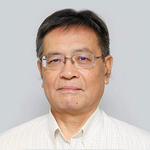
Xueliang DING
Senior Professor of the Shenzhen University
Chris Hao
Chief China Representative of Nasdaq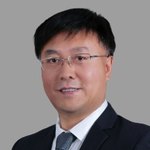
Guangjun Jing
Vice Chairman and General Manager of Guangzhou Industrial Investment Holding Group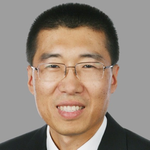
Peter Q. Li
Vice President of Boeing Research & Technology- China
Yvonne Xie
New Media Executive Editor, FORTUNE China
- Harnessing the power of AI breakthroughs
CLAY CHANDLER•Ye Yin•Wei Zhou•Guanchun WangThe past year has brought a host of dramatic advances in artificial intelligence. OpenAI’s GPT-3 language model demonstrated unprecedented natural language generation capabilities that could revolutionize human-computer interaction. Research at DeepMind developed AlphaFold, an AI system that can predict the 3D structure of proteins, with significant implications for drug discovery. AI has contributed to important improvements in the performance of autonomous vehicles and the ability of health care providers to diagnose and treat disease. And now China’s largest tech players are rolling out new AI models of their own. How will these new AI breakthroughs transform the way we work and learn? What risks do they pose? How can we guard against concerns about accuracy, data privacy, and bias?
- CLOSING REMARKS
CLAY CHANDLER - RECEPTION
- DINNER RECEPTION
Burt Guo•Sam YANG•Hui Zhang•Joyce WangScientists to Entrepreneurs: From Lab to Market
Scientists are emerging as a new force of entrepreneurship in China. But to become successful entrepreneurs, these scientists must not only possess technical knowledge, but also have to learn how to deal with challenges related to finance, product development, sales, marketing and customer relations. We talk to several entrepreneurs who moved from the lab to the market and ask: How do scientists have to change to improve their chances of business success?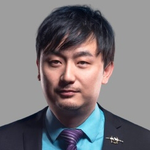
Burt Guo
President and Chief Scientist of AEROFUGIA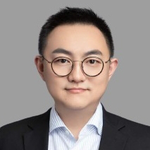
Sam YANG
New Media Associate Executive Editor, FORTUNE China
Hui Zhang
PhD of physics from University of Science and Technology of China, Deputy Director of the Quantum Computing Group of the Chinese Computer Society, Director of Anhui Quantum Computing Engineering Research Center, Legal person and General Manager of Hefei Origin Quantum Computing Technology Co., Ltd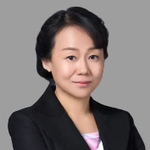
Joyce Wang
Managing Partner of Peakview Capital
- Guangzhou Tech Tour

